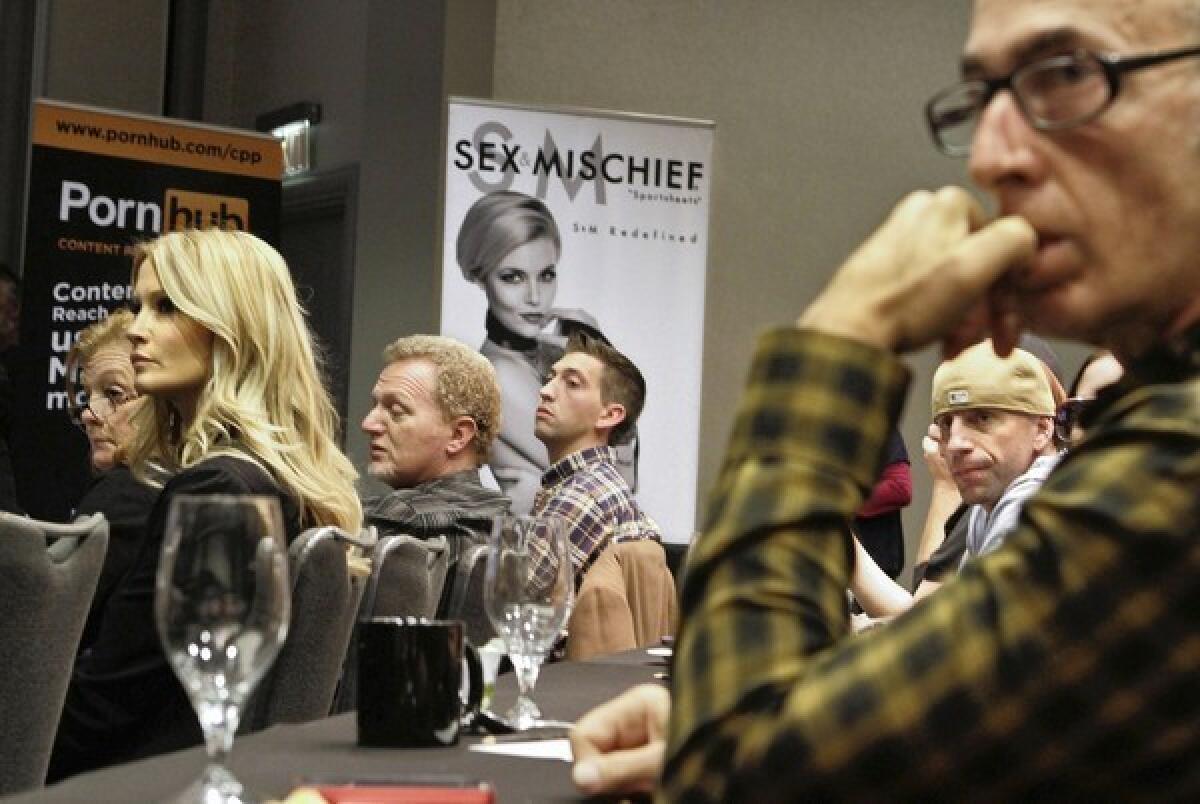Porn industry group blames condom law for drop in film permits

In the year since Los Angeles County voters passed a measure requiring condoms to be used in all adult films made locally, the region has seen a 95% drop-off in film production permits, according to an industry group.
Only 24 permits for adult films have been filed so far in Los Angeles County in 2013, compared with 480 filed in the same period last year, according to the porn industry trade group Free Speech Coalition, citing a report by the film-permitting agency FilmLA.
The coalition estimated that the drop-off amounts to $456,000 in lost revenues to local government, and said that those revenues and jobs have gone to other counties and, in some cases, out of state.
The reported flight of adult film production came despite the fact that the county is doing little to enforce the measure, which is the subject of an ongoing lawsuit. A judge earlier this year ruled that the condom requirement does not violate 1st Amendment free-speech rights, but said that unannounced on-set inspections could violate the constitutional protection against unreasonable search and seizure.
Officials in neighboring Ventura County have reported an increase in porn production there.
Last November, voters passed Measure B, which required condom use in adult films in Los Angeles County. The measure was sponsored by the AIDS Healthcare Foundation, a major HIV care organization, which has argued that porn companies put workers at risk by filming without condoms.
The porn industry briefly shut down twice earlier this year after performers tested positive for HIV. The performers’ onscreen partners tested negative, and the industry maintained there was no evidence that the virus was contracted on set.
The AIDS Healthcare Foundation said the infected performers could have put others at risk, and the incidents showed the inadequacy of the industry’s self-regulating system of frequent testing for sexually transmitted diseases.
ALSO:
Los Angeles business journalist Mark Lacter dies at 59
Vote on desalination plant off Huntington Beach is delayed
Boy seriously burned when camper explodes in Elk Grove driveway
Twitter: @sewella
More to Read
Sign up for Essential California
The most important California stories and recommendations in your inbox every morning.
You may occasionally receive promotional content from the Los Angeles Times.











